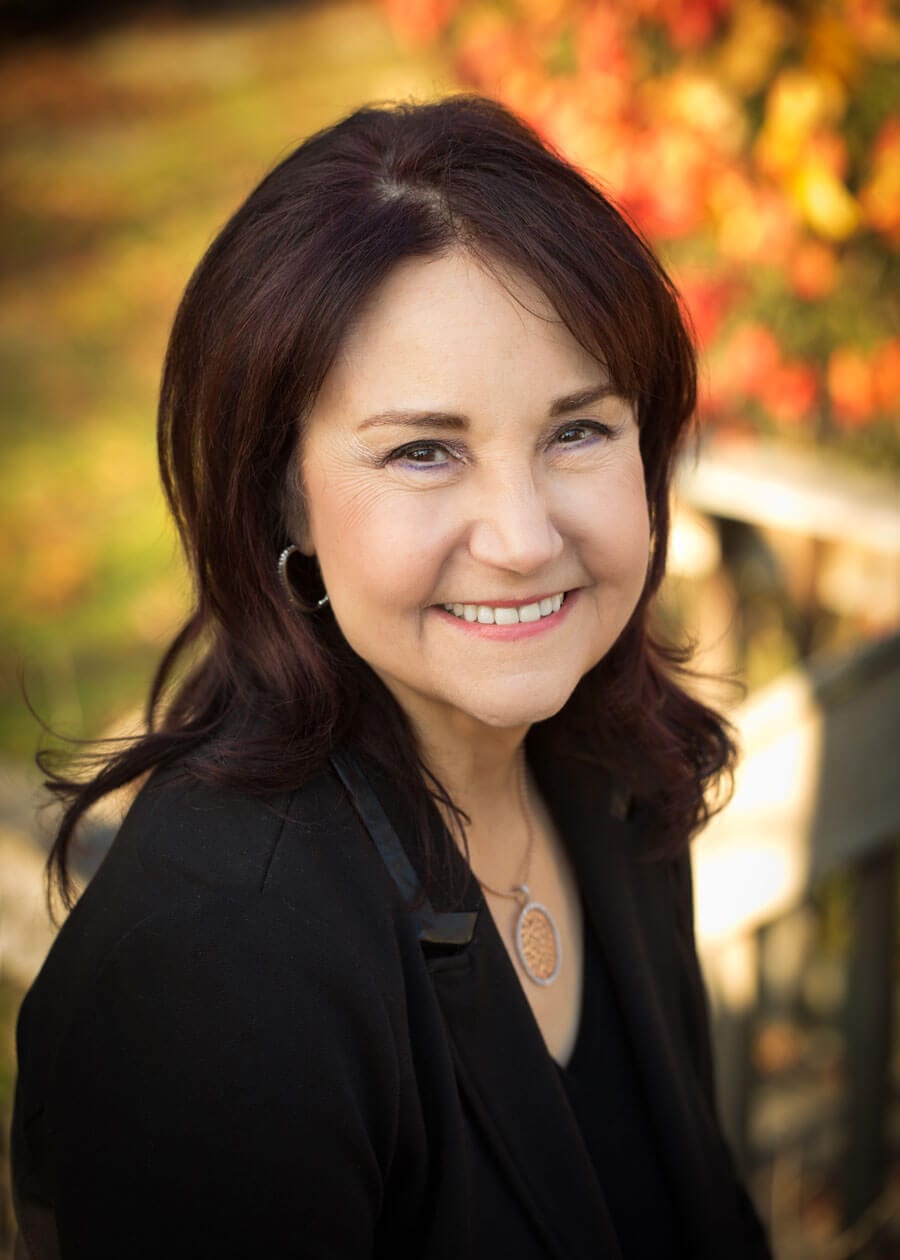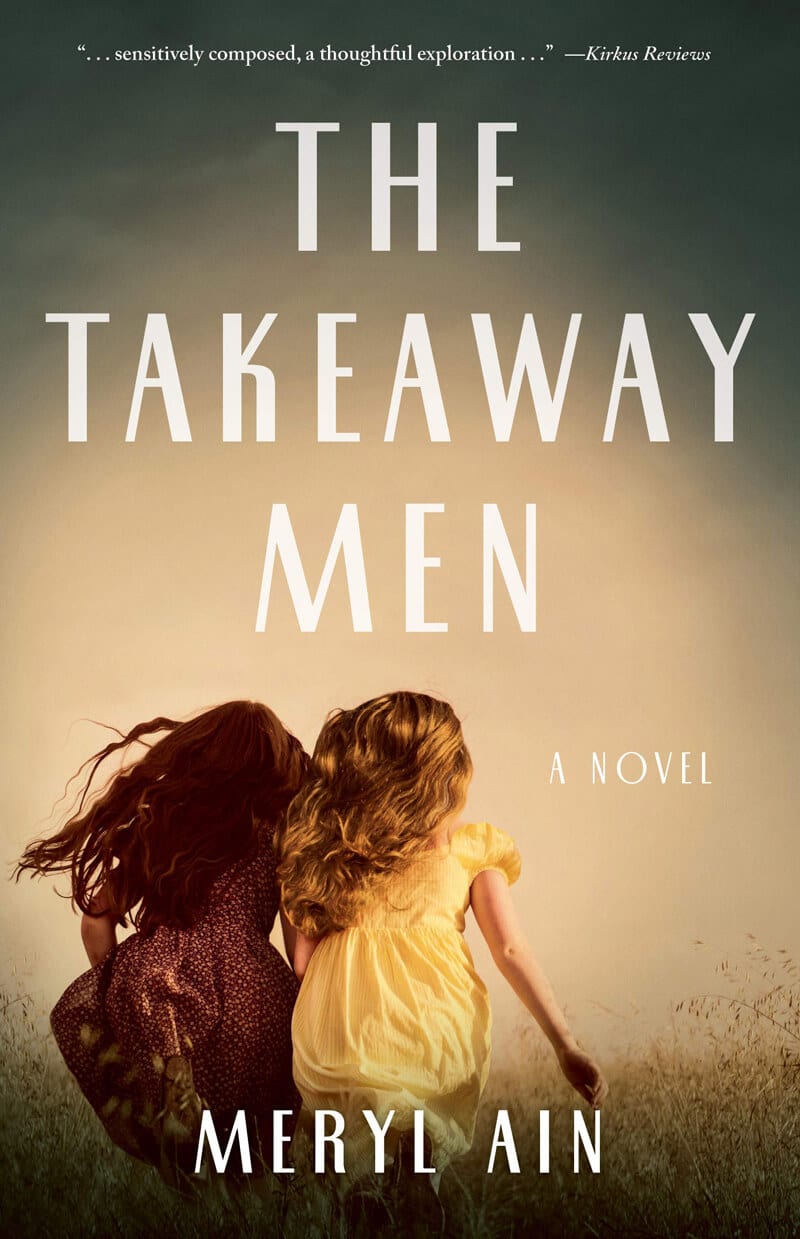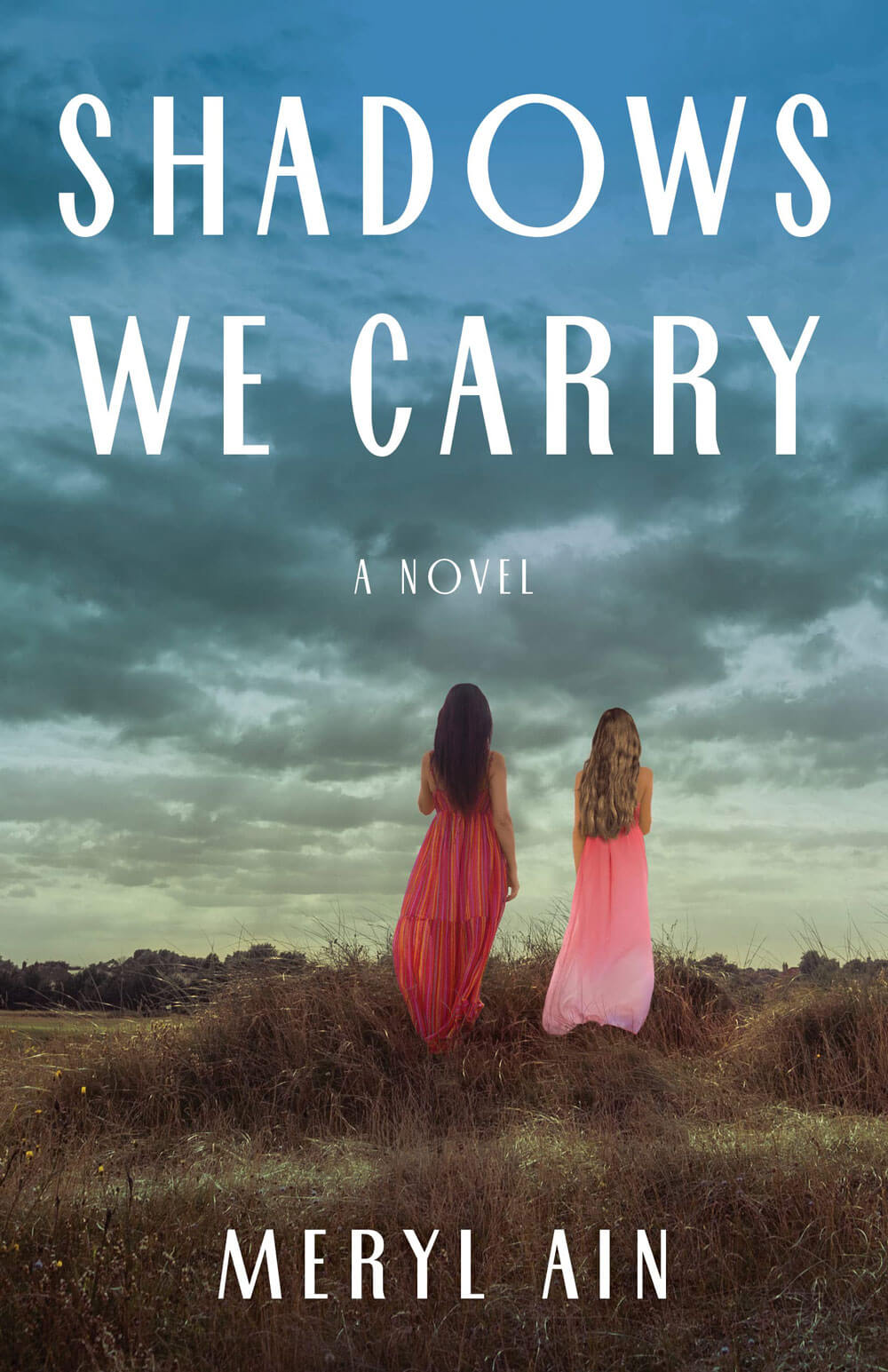
Invite Meryl to Speak at your Book Club
I love book clubs! In fact, I’m a member of one and after my debut novel was published during the pandemic, I met virtually with countless book clubs throughout the United States, Canada and Israel. There’s nothing better than discussing a good book with intelligent and insightful friends. I’ve prepared some sample questions for your group about The Takeaway Men and Shadows We Carry. I hope that both my novels raise more questions than answers – about U.S. and European history and the present. If your book club is geared to a particular demographic, e.g., Baby Boomers, Children/Grandchildren of Holocaust Survivors, Sisterhood, etc., I will be happy to tailor additional questions and topics just for them. I’d love to interact with you and your book club – wherever you may be – on Zoom.

Book Club Discussion Questions
for THE TAKEAWAY MEN
- The Takeaway Men explores the impact of immigration, identity, prejudice, anti-Semitism, and the shadow of the Holocaust on parents and children in mid-Twentieth Century America. Why do you think these issues still garner so much interest today? Which ones are most important to you?
- What, in your opinion, are the most damaging secrets and lies in the book? Why?
- Did Aron commit a sin, as he believed, or did he have no other choice than to conceal Judy’s identity?
- In the early ‘50s, what were the main cultural and political themes? How did these impact Bronka and JoJo and their parents?
- How did Aron equate Lenore’s arrest by the FBI with his family’s experience in Nazi-occupied Poland? Why was he so upset by the execution of Julius and Ethel Rosenberg?
- Compare and contrast Aron Lubinski and Jakob Zilberman in their approach to their experiences during the Holocaust and their desire to have Jewish children to avenge Hitler.
- What effect did secrecy have on the lives of the twins? On Mindy?
- How do the twins’ differing reactions to the Tiny Tears doll exemplify their fundamental differences?
- How were Bronka and JoJo alike and how were they different?
- Do you think the twins are Jewish girls? What about their mother?
- What do you think about the principal’s reaction to Deborah Cohen telling her class about the Holocaust?
- Was Roy Smith AKA Rudolf Schmidt correct in his justification of his role –- and Jakob’s — at Auschwitz? Why? Why not?
- What effect did Aunt Becky’s mental illness have on the girls? Could Faye have handled her daughter differently?
- Did Judy take too long to tell her daughters about her background?
- Do you think she could have had a different relationship with her husband?
- Was Judy a Righteous Gentile, a practicing Jew or both?
- How do you think the parents’ revelations will affect the family in the long run?
- Why is the little known story of the Kielce Pogrom in 1946 important in the story? Why is it important today?

Book Club Discussion Questions
for SHADOWS WE CARRY
- Shadows We Carry explores the issues of gender identity, historical upheaval, and family relationships. Which is most important to you and how are these issues relevant today?
- How did the times in which JoJo lived impact her decisions? Do you think she should have married Bruce? How might her decision be different today and why
- What would happen nowadays if the Dean had spoken to Bronka the way he did during her interview for Journalism School? How were Bronka’s perceptions about her personal and professional choices shaped by the times in which she lived?
- Describe the twins’ relationship. How did it change over time? How were they alike and how were they different?
- How were each of the twins a product both of their times and of the impact of the Holocaust? Explain.
- What do you think motivated Ned in pursuing Bronka? Why do you believe Bronka allowed the relationship to continue for years? Was she/should she have been suspicious? What would their connection look like today?
- What is your opinion of Mindy? Was her reaction to the news about the identity of her father justified? What do you think about her mother’s decision to hide this from her for so many years?
- Bronka asks Father Stan, “Do you think the children and grandchildren of Nazis and their sympathizers bear any responsibility for what their relatives did during the war?” How would you answer this question?
- Do you think it was necessary for the federal government to track down former Nazis who had slipped into the U.S. after having committed war crimes?
- Do you feel it was important for Brian to learn about his father’s Nazi past? Do you believe his mother was hiding the truth or was she really ignorant of her husband’s actions at Auschwitz?
- Bronka writes in her op-ed about her reactions to the NBC miniseries, Holocaust: “If we learned anything from the Holocaust, it is that it took place in incremental steps while average people let it happen.” Do you agree that this is the most important lesson of the Holocaust? If so, why? If not, what is?
- Why was Bronka so attracted to Father Stan? What do you think was his interest in her?
- Is the religion into which a person is born or the one in which an individual is raised more important? Do you believe it’s possible to practice two religions at once?
- Do you think JoJo should have forgiven Bruce? Did your opinion of her mother-in-law, Doris, change after this incident?
- Do you agree with Doris that JoJo grew up in a house where feelings were not discussed? If so, why do you think this was the case?
- Do you think Faye was correct in telling Bronka to move out of the house? Why do you believe Aron was so opposed to the idea?
- What did the conversion to Judaism do for Bronka? Do you think JoJo should have converted too?
- Why was Oren the right person for Bronka?
- Why was it so important for Aron to have grandchildren?
- Many people today have their DNA tested. How important are family bloodlines in the life of an individual?
- The characters in the book are products of their time. Give a few examples of this. How are the choices we make influenced by the time and place in which we live? Which do you think is/was a better time to come of age—the present or the ’60s or ’70s? Compare the societal opportunities, constraints, and pressures then and now.
- Were you surprised to learn that Brian’s mother was again living with his father?
